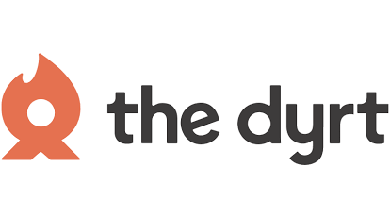How One Family Launched a Thriving Mobile RV Repair Business in North Carolina
Building a business around the kind of life they want to lead is a priority for the Iraggis.
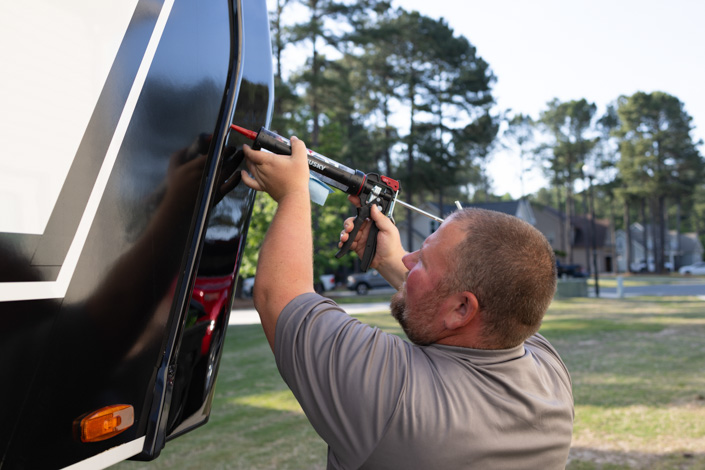
Have you ever heard a little voice in your head that told you to move in a different direction?
Whether it’s gut instinct, a sign or God sending you a message, sometimes it pays off to take a leap of faith and listen.
“God had put us in a season of feeling very restless for a couple of years,” says Stephanie Iraggi, who owns Pathway RV Services with her husband, Jacob. “There was this inner [voice saying], ‘I’m ready for something new.’”
“So, in late January we made the decision to take the jump, and we established the business from a legal sense in February,” Jacob says. “I gave my notice in March, and we were full time at the end of March. And here we are.”
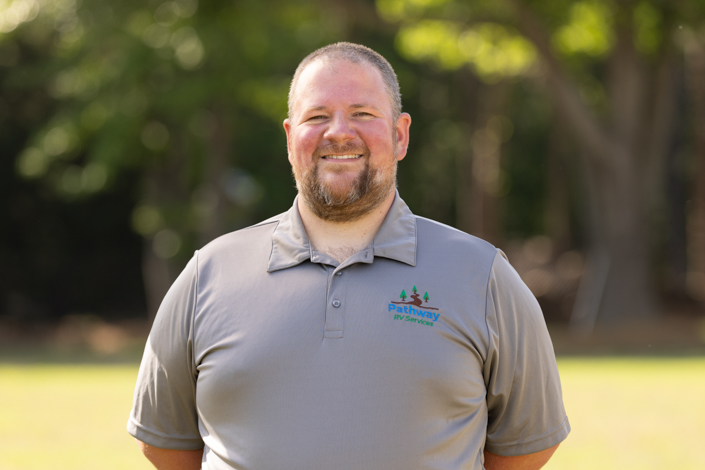
Before launching Pathway RV Services — a mobile RV repair service — Jacob worked for a dealership near where the family lives with their children, Bethany, 9, and Levi, 6, in the Research Triangle region of North Carolina. After 14 years of working for a dealership, which Jacob says played a big role in honing the skills he uses every day, he and Stephanie went into business together partly to be able to spend more time as a family.
“We don’t want to miss these years. I feel that every season of life is precious, but they’re getting older at a rapidly accelerating pace,” Jacob says, referring to his children. “We want to better our marriage, too.”
Keeping Things Moving
The Iraggis live in a high-traffic area where Highway 40 goes east and west and Interstate 95 heads north and south. It’s a prime location to catch RVers heading east to the beach or to sites like Jordan Lake State Recreation Area, which Jacob says is the largest state-funded campground in the Tarheel State.
“It’s a big mix of things — a lot of times it’s just people traveling through or also work campers,” he says.
Stephanie says he’s helped different businesses that use RVs as a base, like carnival workers and the Durham County Library’s Tech Mobile.
“I have a relationship with a number of dealerships in the area. If they have a higher workload than they can handle, they can hire me for some contract work,” Jacob says. “In my experience, the majority of dealerships don’t offer a mobile service. It’s just one more component of the things that they’re already juggling that they don’t have the time to manage.
 “So, I’ve been hired by a number of dealerships [who say], ‘we have our customer over there — can you go to where they are?’”
“So, I’ve been hired by a number of dealerships [who say], ‘we have our customer over there — can you go to where they are?’”
There is also work for RV mobile technicians as third-party inspectors, Jacob says. As a master-certified technician who has conducted hundreds of pre-delivery inspections (PDIs), he is qualified to work with a customer to look over a new or used RV to make sure it’s in good shape before making a purchase.
“He has had so much experience [with different] brands and designs … he knows all of the things to look for that may be different,” Stephanie says. “Someone who doesn’t have a mechanical background, that technician background, doesn’t necessarily know what to look for or flag. So they get a very accurate picture because of his background because he knows the [RVs] in and out.”
One of the roles Jacob filled at his previous job was as a parts manager, so he can source his parts through his account with distributors like NTP-STAG, or Amazon, or specific manufacturers to get what he needs to repair a refrigerator, air conditioner, awning or hot water heater — just a few of his typical repairs.
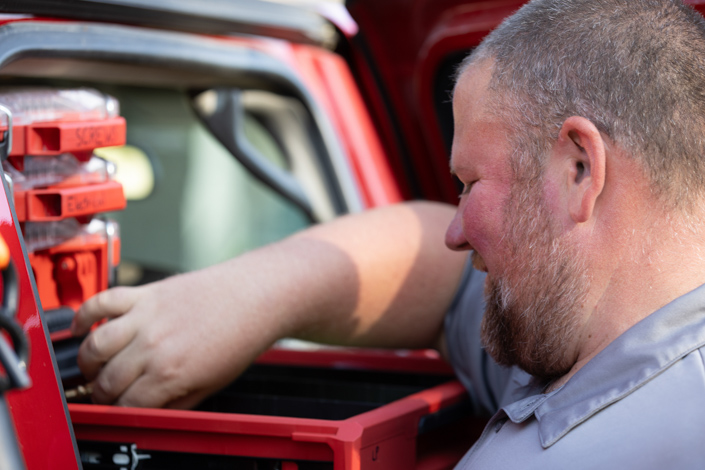
“If it’s like, hey, I need it today. Well, guess what? I’m within 45 minutes of five different RV dealerships that I can call, and if they’ve got it, I can run and go get it,” Jacob says.
Providing an Education
Much of what Jacob does is diagnostics work and educating the customer — not only will he fix the problem, but he also enjoys showing the customer what happened, and why, so they better understand the inner workings of their RV and can potentially prevent or fix future problems on their own.
“He’s extremely gifted and enjoys doing diagnostics and figuring out, ‘Instead of replacing this whole appliance, can we just fix it and save you money and time?’” Stephanie says. “You know, it might cost the customer a little more time … but [Jacob] can save them a lot of money.”
And it’s the education piece that Stephanie says sets Jacob apart.
“He’s good with ‘I’m fixing your water heater, but [also] here’s how it works,’” Stephanie continues. “He’s known for taking the time to stop and explain it and make sure that [the customer] actually thoroughly understands these things so that they can be a more informed RV user.”
The COVID-19 pandemic brought many newcomers to the RV lifestyle, which has made Jacob’s ability to educate especially valuable.
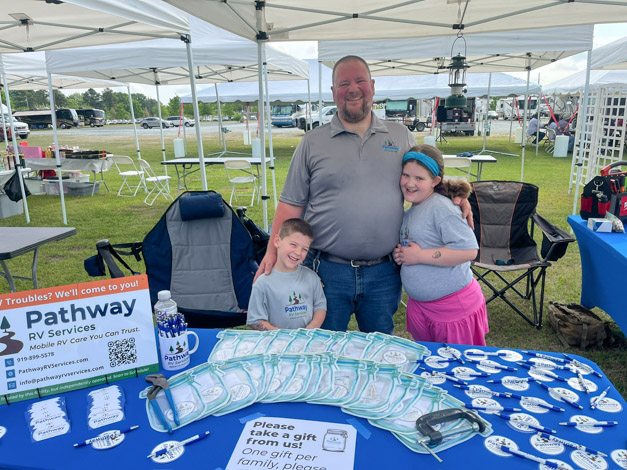
“The majority of people who buy an RV don’t know how it works. In your regular home, the water heater is always on, and if it’s broken, you’ve got to call somebody,” Jacob says. “In an RV … most water heaters have a propane component. And there’s an electrical component, so there’s two different switches. If you’re on the road and you’re stopped in a Walmart parking lot, you need your generator running to run the electric side of your water heater. But you need your propane turned on to run the propane side of your water heater. That’s just stuff you don’t have to think about in your house.”
Jacob says it’s high praise for him when he’s educated a customer on some component about their RV that they didn’t understand, and now they grasp how that part functions.
“Especially with COVID, production went up. A lot of manufacturers were just pushing stuff out the door. Lots of dealerships popped up,” Jacob says. “And with that came a shortage of RV technicians across the country, so many of the new hires don’t have a lot of education or experience under their belts yet. They aren’t able to explain to the customer how their RV works.
“That’s something that I love to do.”
Training as a Differentiator
Jacob says he’s a big supporter of training offered through organizations like the RV Technical Institute, which is who he received his certification from. But there is a difference between what he calls “book knowledge and head knowledge.” He says he’s proud to have developed both — on-the-job experience, plus certification that he says gives him a “feather in my hat” that shows he’s master certified and can perform at a high level.
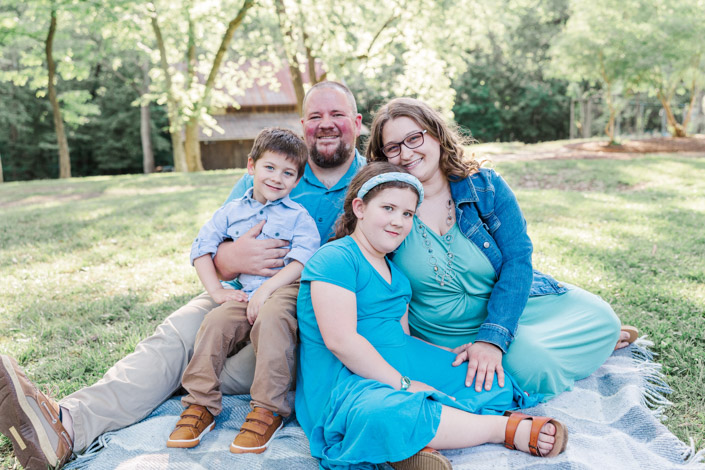
“I’ve got continuing education credentials I have to keep up to maintain certification, and I was a big advocate for [the technicians I’ve worked with] pursuing at least some level of training … because from a personal perspective, it gives you pride in what you do. I think it makes you better at what you do. It also makes you more valuable not only to your current employer but to any possible future employers,” Jacob says.
Certification may also make a difference to potential clients. If he’s being compared to other technicians in the area, and a customer sees he is master certified, he says he hopes that shows that he invested in himself to be the best he can be.
Business Acumen
Stephanie also plays an integral role in making the business a success. Stephanie calls herself a “serial entrepreneur,” and now that their kids are school age, she says she has the “brain space to partner up with him to do something bigger.”
From marketing to creating the website, email communications, graphic design and more, Stephanie handles what she says is “the background and business management.”
And, just like in a marriage, there can be push and pull. For instance, when quoting a customer for work on an RV, Stephanie has encouraged Jacob to charge what he is worth.
 “You have to charge for your time — to pay the bills,” Stephanie says with a laugh.
“You have to charge for your time — to pay the bills,” Stephanie says with a laugh.
Working as partners also allows the couple to participate in homeschool and extracurricular activities with their children by maintaining a flexible schedule.
“We’re able to do more together as a family,” she says. “We’re getting to see him at breakfast and at lunch … that’s been a big deal. That’s been a much happier family dynamic.”
While Pathway RV’s hours typically range from 9 a.m. to 5 p.m., there have been times when Jacob has responded to a call in the evening or on a weekend.
“RVs will break every day of the week,” Jacob jokes. “I’ve only been in this mobile game for a few months, so I’m not quite as backed up as some of the guys who’ve been established for a few years.”
That availability means he can work a Saturday job if he needs to make up for holes in the weekday schedule. Working in that flexible manner suits Jacob just fine, he says, but his wife is more structured.
“Like she said, opposites attract, and it’s a good balance. She reminds me ‘let’s try and get this thing done now so we don’t have to do them tonight,’” he says.
Stephanie says that the goal starting out was to hit a minimum to cover expenses and pay bills, because their primary goal is having more time together as a family.
“Maybe we could get to a point where we could double our income for the week, but if it means deprioritizing those things,” she says, “we can put it off … which is one of the benefits of [being able] to make that decision — you can have those priorities.”
Reaching Mobile RV Repair Customers on a New Level
Pathway RV’s focuses its marketing efforts primarily on places like RV Facebook groups or hanging up flyers and leaving business cards at campgrounds and other nearby places where RVs go — such as shows and rallies. Word of mouth is also a big help, too.
“We joke that he could make friends with a wall,” Stephanie says about Jacob. “So he’s talked to everybody and made those connections.”
The couple also makes sure to have a good presence on Google, and they follow up with customers with a newsletter to drive repeat business and remind them when it’s time to winterize their RV or perform other maintenance care.
Continuing to provide this type of support and educating their customers is a priority for Pathway RV moving forward.
“We want to serve the people in this area,” Jacob says. “We want to be known as a company that provides great education and strong information.”
And continuing to keep their family top of mind will always be the couple’s focus.
“We want to live life well,” Stephanie says. “We want to have a life that is rich … not specifically financially. We want to have a life that’s rich in relationships, a life that’s rich in family, and — we’re believers — in Jesus. The life of sharing Jesus with people, sharing the good things in life.
“We want to live in a way that reflects that, and we want that to overflow into the customers we interact with too … A lot of times people walk away from their interactions with [Jacob] feeling like they were truly seen. That it wasn’t just, hey, this guy walked in, fixed my thing and left. He makes a point to connect with people. That’s important. And that’s a rarity,” she says. “So, we want the people that we interact with to come away with that, even if it’s a momentary connection — somebody saw me, somebody connected with me and that mattered.”


